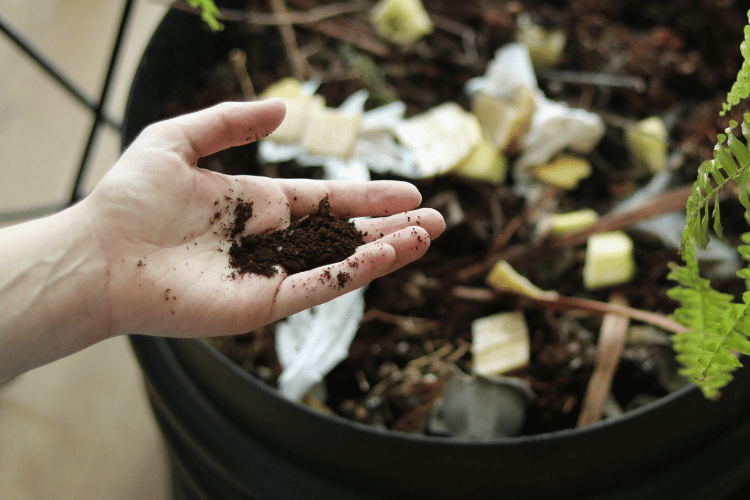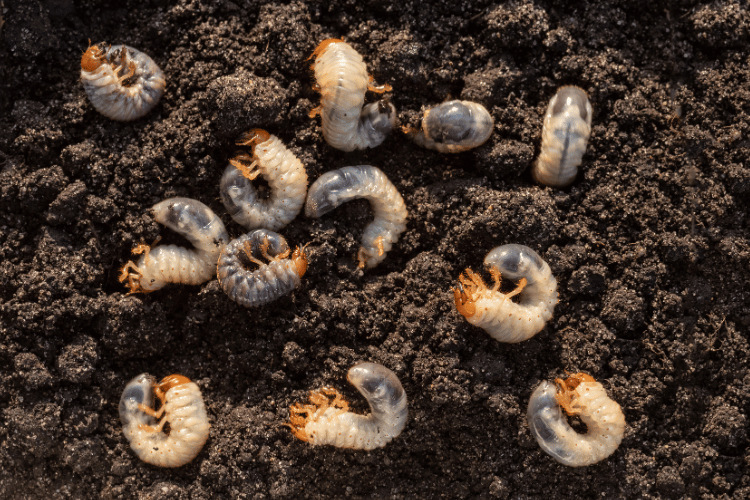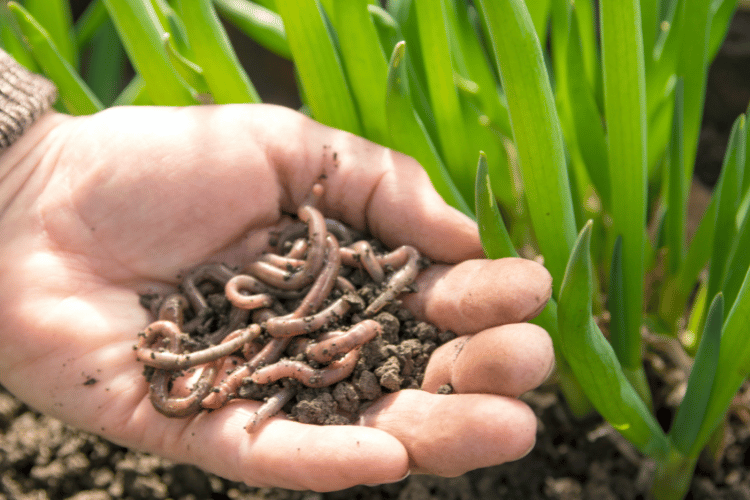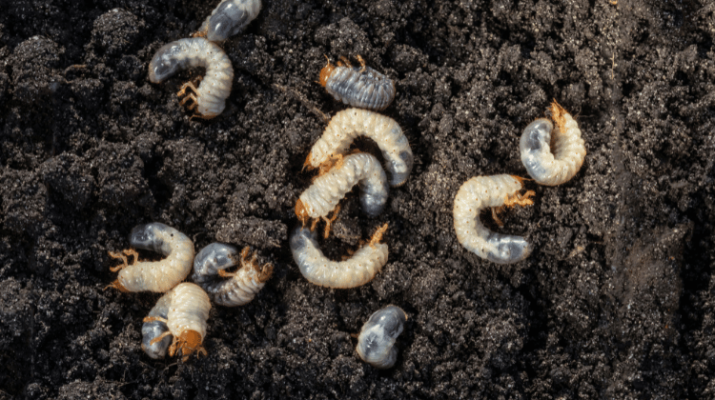Composting, the art of turning vegetable scraps, fruit peels, and food waste into nutrient-rich gold for your garden, is a green thumb’s secret weapon.
But what happens when you open your compost bin and find unexpected guests from the worm farm—white worms?
Are they helpful allies or troublemakers? In this article, we’ll discuss the good and the bad of compost white worms—we’ll help you understand whether white worms in your compost are a cause for celebration or concern.
The Good: White Worms as Beneficial Compost Creatures

Ever spotted those pale, tiny wrigglers in your compost and wondered if they’re on your side?
Good news—white worms, like the well-known Eisenia fetida, are nature’s composting allies!
Here’s why you should welcome them into your composting ecosystem:
Decomposition Dynamo
White worms are nature’s cleanup crew, breaking down layers of kitchen scraps and organic wastes into nutrient-rich compost.
Their voracious appetite for organic matter speeds up the decomposition process, turning your food scraps into valuable fertilizer.
Balancing Act
White worms are excellent indicators of a healthy compost pile.
When you spot these critters, it’s a sign that your compost has the right mix of moisture and aeration, creating the perfect environment for beneficial organisms to thrive.
Compost Enrichment
Earthworms don’t just break things down; they also enhance the compost’s nutritional value.
As they munch through organic material, they excrete nutrient-rich castings, adding valuable minerals and microbes to your compost.
Microbial Marvels
White pot worms engage in a symbiotic dance with microorganisms in the compost.
Their activities stimulate microbial growth, creating a bustling community of tiny workers that further contribute to the breakdown of organic matter.
The Concern: When White Worms Are Bad News

While most white worms are compost champions, there are instances where their presence might signal trouble in the compost paradise.
Let’s explore the factors that could turn these helpful creatures into indicators of a compost conundrum:
Identification Matters
Species like Eisenia fetida are generally beneficial, aiding in the decomposition process.
However, not all worms are created equal. Certain types of white worms may disrupt the compost balance, leading to unpleasant consequences. It’s important to learn how to identify different species for that purpose.
Environmental Influences
White worms thrive in moderate temperatures. Extreme heat or cold can stress them, affecting their ability to function effectively.
A disproportionate ratio of green to brown materials can create an inhospitable environment, deterring the beneficial activity of white worms.
Signs of Trouble
If your compost suddenly emanates foul smells, it could be a sign that the balance of beneficial organisms, including white worms, has been disrupted.
White worms typically speed up the composting process. If things are slowing down, it’s time to investigate what’s causing the sluggishness.
In essence, the appearance of white worms in your compost isn’t always a cause for celebration. It’s crucial to identify the types of worms present, understand the environmental factors at play, and be vigilant for signs that your compost ecosystem might be under stress.
How to Maintain and Assess Your Compost Pile
Maintaining a flourishing worm compost pile involves keeping a watchful eye on its inhabitants and conditions.
Regular assessment allows you to gauge the health of your compost and address any issues that may arise. Here’s a detailed guide on how to assess your compost pile:
Regular Monitoring
To assess its performance, take a moment to visually inspect your compost. Look for the presence of white worms and observe their behavior.
A well-balanced worm compost pile should emit an earthy, pleasant odor. Unpleasant smells may indicate issues like anaerobic conditions, excess moisture, or the presence of harmful organisms.
Adjusting Composting Conditions
The first step in adjusting composting conditions is balancing green and brown materials in your compost heap. Ensure a mix of nitrogen-rich green materials (e.g., vegetable waste) and carbon-rich brown matter (e.g., agricultural waste). Adjust ratios as needed.
The second step is maintaining consistent moisture levels—it should be like a wrung-out sponge. Excessive dryness or sogginess can deter white worms and other beneficial organisms.
Lastly, make sure to turn the compost regularly to promote aeration. Oxygen is vital for the activity of white worms and other aerobic organisms.
Maintaining Optimal Conditions
White worms prefer temperatures between 55°F and 77°F (13°C to 25°C). So, make sure to shield your compost from extreme heat or cold.
These worms should be active and visible. So, if they retreat deeper into the pile, it might indicate unfavorable conditions. You’ll want to explore the cause to be able to fix it.
Problem-Solving: What to Do If White Worms Become an Issue

Encountering issues with compost worms doesn’t mean abandoning ship. Instead, consider these problem-solving strategies to address any challenges:
- Learn to distinguish between beneficial and harmful white worms. Harmful species may include those that disrupt the composting process or damage plants.
- If you want to get rid of the worms, consider introducing natural predators like nematodes or predatory beetles that feed on harmful worms without resorting to chemical interventions.
- Regularly turn the compost to enhance aeration and disrupt the habitat of harmful worms.
- Increase the ratio of carbon-rich brown materials to rebalance the compost. This helps create an environment less favorable to harmful white worms.
- Connect with local gardening groups or forums to seek advice from experienced composters who may have encountered similar challenges.
- If problems persist, seek guidance from agricultural extension offices or composting experts. They can provide tailored solutions based on your specific situation.
Conclusion
In the world of vermicomposting, white worms are either your allies or a signal for adjustments.
Celebrate the beneficial worms that speed up decomposition, enrich your compost, and signal a healthy ecosystem.
Yet, if issues arise, don’t give it much thought. By identifying problems early, adjusting your compost mix, and seeking advice, you can turn challenges into opportunities for growth.
What’s important is to keep an eye on the compost and regularly monitor it for any changes. Don’t ignore sudden bad smells; they’re often a sign that something is wrong with the compost.

